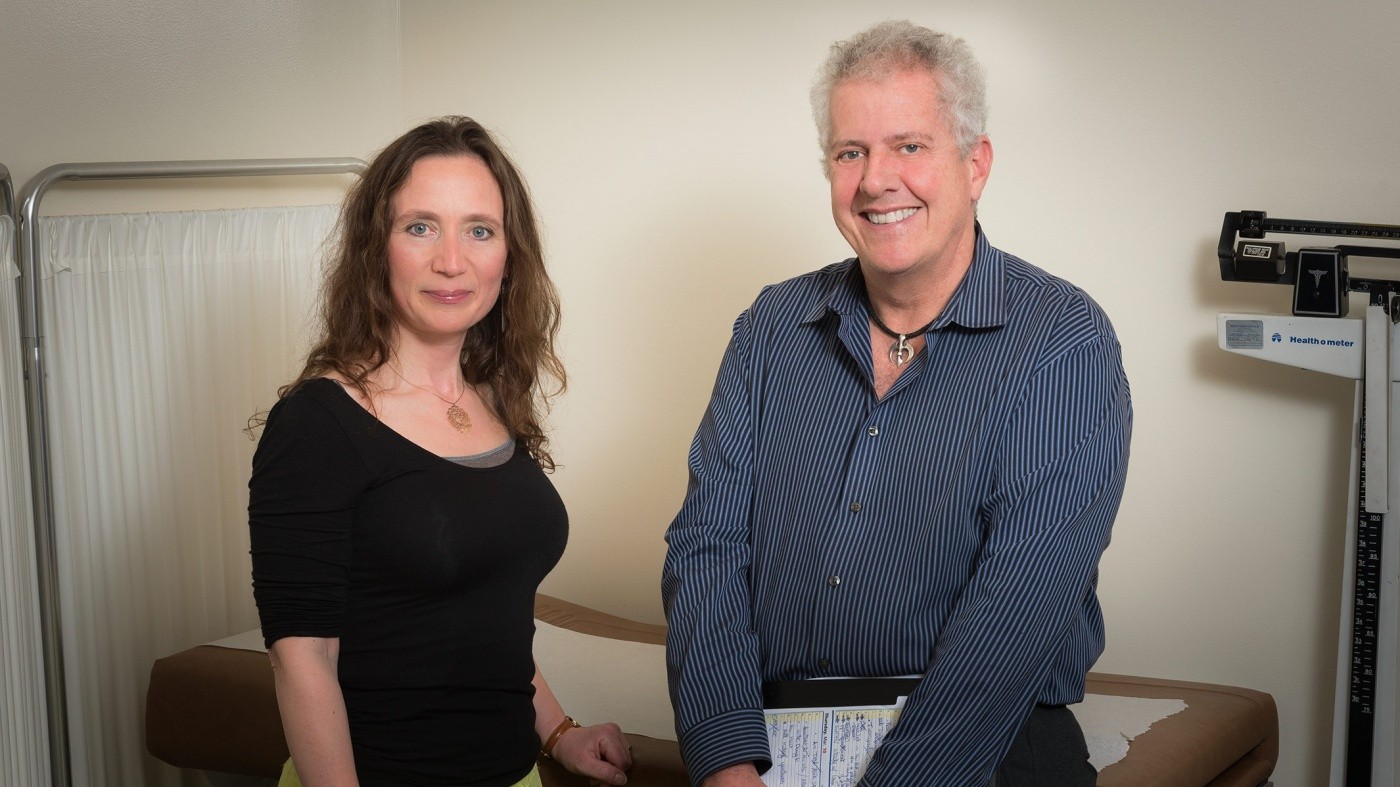Gladstone NOW: The Campaign Join Us on the Journey✕

A new paper by Patricia Defechereux, PhD, and Robert Grant, MD, MPH, reported no link between taking Truvada for oral PrEP and experiencing depression. [Photo: Chris Goodfellow, Gladstone Institutes]
A new paper out of the iPrEx study—a randomized, placebo-controlled trial of daily oral HIV pre-exposure prophylaxis (PrEP) in men and transgender women who have sex with men—reported no link between taking Truvada for oral PrEP and experiencing depression.
During the iPrEx study, depression was the most frequently reported adverse event. As the use of Truvada for HIV prevention increases, it is important to understand the impact of PrEP on depression and whether depression can hinder PrEP.
“We’ve shown Truvada to be safe and effective for HIV prevention,” says senior author Robert Grant, MD, MPH, a senior investigator at the Gladstone Institutes. “Because previous studies suggested a link between certain antiretroviral therapies and depression, we wanted to explore whether or not there was an increased risk for psychosocial health problems associated with PrEP.”
The current study, published in AIDS and Behavior, systematically examined whether there was a causative link between Truvada and depression. Comparing scores on a depression and a suicidal ideation scale administered during the study, the researchers found there was no difference in depression or suicidality between participants who received Truvada or placebo. There was also no difference in the number of depression-related adverse events between the two study groups. In addition, there was no evidence that PrEP was less efficacious in depressed participants.
However, half of all participants in the iPrEx study, regardless of the study arm they were in, reported depression scores over the threshold for clinically significant depression. It is well documented that rates of depression are substantially higher among gay men and transgender women who have sex with men.
“Depressive symptoms are associated with sexual practices that increase risk for HIV acquisition,” said first author Patricia Defechereux, PhD, a senior research associate at Gladstone. “The additional protection conferred by PrEP during episodes of depression could avert infections during these especially vulnerable times.”
Scientists from the University of California, San Francisco, Fenway Community Health, Investigaciones Medicas en Salud, University of Michigan, Desmund Tutu HIV Foundation, Fundacion Ecuatoriana Equidad, University of Sao Paulo, and National Institutes of Health also took part in this research.
Funding was provided by the Division of Acquired Immunodeficiency Diseases, National Institutes of Health, and the Bill and Melinda Gates Foundation. Study drugs were donated by Gilead Sciences.
Support Our COVID-19 Research Efforts
Gladstone scientists are moving quickly to respond to the coronavirus outbreak. Help us end this pandemic.
One Person’s Final Gift to Science Gets Us Closer to an HIV Cure
One Person’s Final Gift to Science Gets Us Closer to an HIV Cure
A new documentary follows Jim Dunn’s end-of-life decision to donate his tissues to HIV research.
Institutional News HIV/AIDS Infectious Disease Roan LabBeyond Viruses: Expanding the Fight Against Infectious Diseases
Beyond Viruses: Expanding the Fight Against Infectious Diseases
The newly renamed Gladstone Infectious Disease Institute broadens its mission to address global health threats ranging from antibiotic resistance to infections that cause chronic diseases.
Institutional News News Release Cancer COVID-19 Hepatitis C HIV/AIDS Zika Virus Infectious DiseaseCharting the Body’s Defense Against HIV Leads to Broader Immune Revelations
Charting the Body’s Defense Against HIV Leads to Broader Immune Revelations
Gladstone scientists created a new tool to understand the immune system’s inner workings when confronted with a virus.
Research (Publication) HIV/AIDS Infectious Disease Roan Lab



